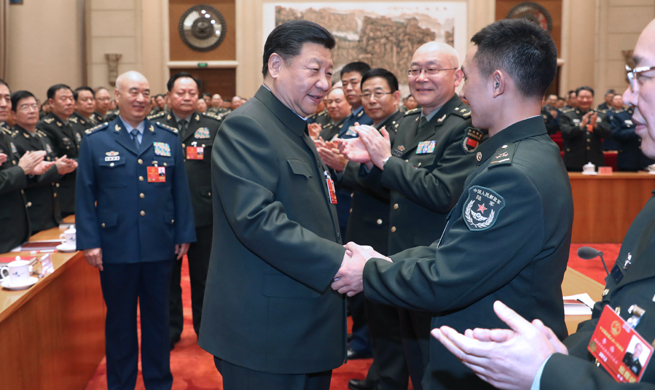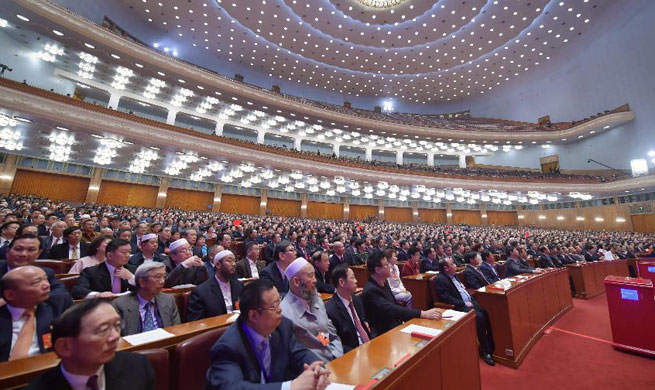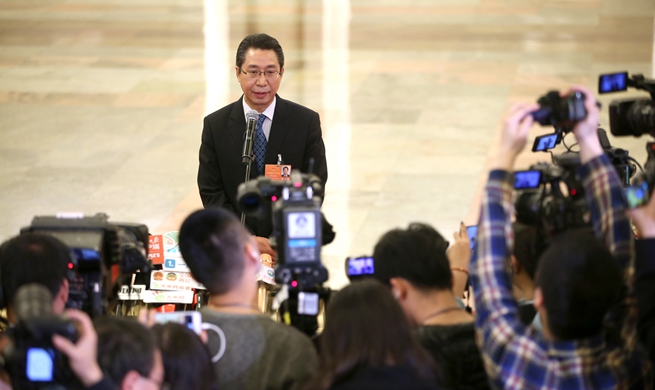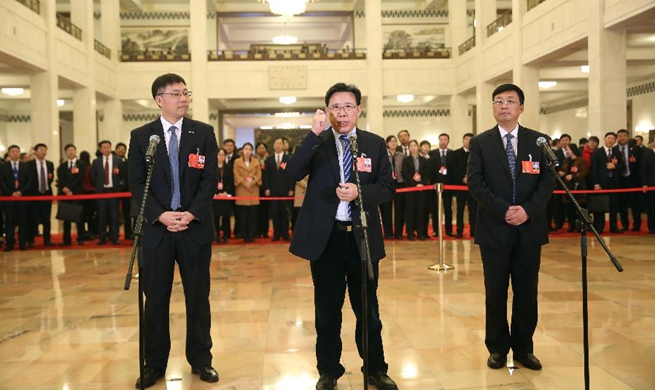by Xinhua writer Wang Zichen
BRUSSELS, March 14 (Xinhua) -- By wielding a big tariff stick with conditioned exemptions, Washington has dealt the current global multilateral trade system a heavy blow.
U.S. President Donald Trump last Thursday formally signed proclamations to impose a 25-percent tariff on imported steel and a 10-percent tariff on aluminum, which is scheduled to come into force in 15 days.
As is known to all, most of U.S. steel and aluminum imports are civilian products. Few, if any would buy the Trump administration's "national security" excuse for imposing the tariffs.
Here in Brussels, headquarters of the European Union, a traditional U.S. ally, European Commission officials described the tariff as "appears to represent a blatant intervention to protect (the) U.S. domestic industry" and "an economic safeguard measure in disguise."
Even World Trade Organization (WTO) Director General Roberto Azevedo expressed concerns for the U.S. move, an extremely rare intervention into a WTO member's trade policy.
Yet the fact remains, that some countries have obtained exemptions from the new tariff policy with conditions which suggested Washington's real intention to roll out these punitive measures.
Canada and Mexico are undertaking renegotiations with the United States on the North American Free Trade Agreement (NAFTA). Granting them exemptions can be seen as an attempt by Washington to pressure its two neighbors to complete the NAFTA talks -- giving in to other U.S. demands or giving up some of their own.
Australia was also awarded exemption and reports say Trump wanted a new security agreement on top of that before he could scrap the tariff. As we speak, more U.S. trade partners are seeking exemptions.
But they had better bear in mind that trying to secure temporary, case-by-case exemptions suggests the threat of tariffs is working. And it could embolden the United States, or other countries, to follow the same trick in the future.
Over the long run, they will discover the price of trading concessions for exemptions. By appeasing Washington's dangerous trade policy, the global trade rules would face a serious challenge. In the end, the rule-based multilateral trading system with WTO at its heart may exist in name only in the future, a nightmare scenario for the interests of all parties.
It is advisable that Washington refrain from using protectionist measures, and related parties solve their trade frictions within the WTO framework to jointly maintain a healthy multilateral trade order.

















